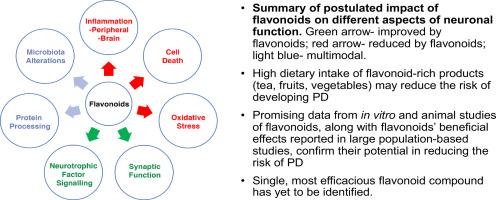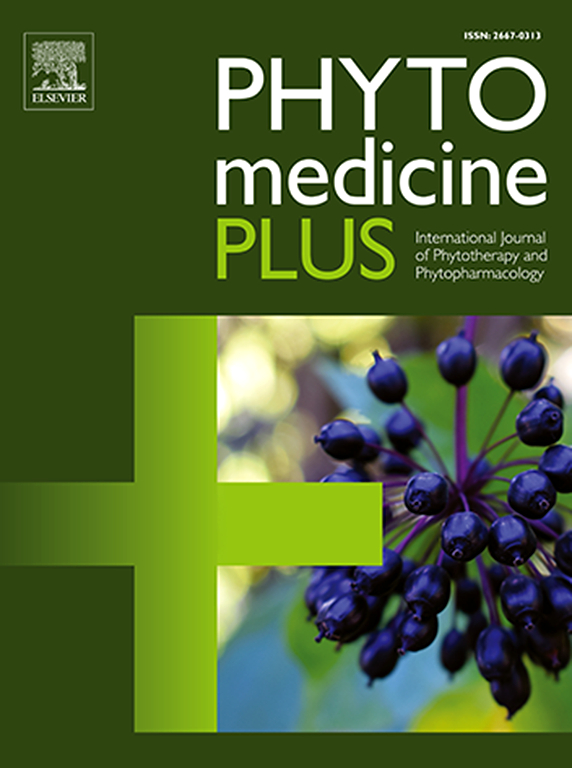Flavonoids and related compounds targeting pathomechanisms of Parkinson’s Disease – from bench to bedside: A focused review of current perspectives, clinical trial outcomes, and future directions
Q3 Pharmacology, Toxicology and Pharmaceutics
引用次数: 0
Abstract
Background
The pathomechanisms of Parkinson's Disease (PD) remain incompletely understood. Key mechanisms include oxidative stress, neuroinflammation, and mitochondrial dysfunction. Disease-modifying strategies are still being investigated. Flavonoids are suggested to be able to influence the neurodegenerative process, but clinical evidence is limited.
Purpose
This review explored current, key pre-clinical but mainly clinical evidence for the potential of flavonoids and related compounds in treating PD.
Study design and Methods
Retrospective analysis of ClinicalTrials.gov registry was performed with terms “Parkinson disease” and “parkinsonism”. For trials marked as “completed”, the results were searched in both the “ClinicalTrials” Database and PubMed. PubMed was also searched to identify original papers and meta-analyses of the effects of flavonoid intake in PD patients.
Results
2810 interventional studies were identified in the ClinicalTrials registry (www.ClinicalTrials.gov). A total of 18 trials were registered, with only 5 of them published as a full text article. Data from preclinical studies showed the promising effects of flavonoids in PD models. Animal studies data and data on flavonoids’ beneficial effects in population-based studies further confirmed their potential in reducing the risk of PD. However, a single, most efficacious flavonoid has yet to be identified.
Conclusion
Current evidence, including from epidemiological studies, suggests that diets rich in flavonoids can improve the course of PD. However, clinical trials data to date, which are quite limited, indicate no routine supplementation with flavonoids has proven useful so far in the specific context of eliciting neuroprotection as a primary outcome. More robust preclinical studies followed by more clinical trials are needed to generate sufficient and reliable data.

黄酮类化合物及相关化合物靶向帕金森病的病理机制——从实验室到床边:当前观点、临床试验结果和未来方向的重点回顾
帕金森氏病(PD)的发病机制尚不完全清楚。关键机制包括氧化应激、神经炎症和线粒体功能障碍。疾病改良策略仍在研究中。黄酮类化合物被认为能够影响神经退行性过程,但临床证据有限。目的综述黄酮类化合物及其相关化合物治疗帕金森病的现有、关键的临床前证据,但主要是临床证据。研究设计和方法回顾性分析ClinicalTrials.gov注册表中的“帕金森病”和“帕金森症”词条。对于标记为“完成”的试验,结果在“临床试验”数据库和PubMed中搜索。PubMed还检索了有关类黄酮摄入对PD患者影响的原始论文和荟萃分析。在ClinicalTrials registry (www.ClinicalTrials.gov)中确定了2810项介入研究。共有18项试验注册,其中只有5项作为全文发表。临床前研究数据显示,黄酮类化合物在PD模型中有良好的作用。动物实验数据和基于人群的研究中黄酮类化合物有益作用的数据进一步证实了它们在降低帕金森病风险方面的潜力。然而,一种最有效的类黄酮尚未被发现。结论包括流行病学研究在内的现有证据表明,富含类黄酮的饮食可以改善帕金森病的病程。然而,迄今为止的临床试验数据非常有限,表明到目前为止,黄酮类化合物的常规补充还没有被证明在引发神经保护作为主要结果的特定背景下有用。需要更有力的临床前研究,然后进行更多的临床试验,以产生足够和可靠的数据。
本文章由计算机程序翻译,如有差异,请以英文原文为准。
求助全文
约1分钟内获得全文
求助全文
来源期刊

Phytomedicine Plus
Medicine-Complementary and Alternative Medicine
CiteScore
3.70
自引率
0.00%
发文量
178
审稿时长
81 days
期刊介绍:
 求助内容:
求助内容: 应助结果提醒方式:
应助结果提醒方式:


